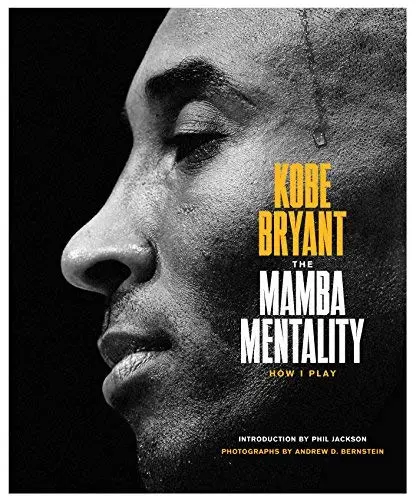While it’s impossible to learn how to fight from books, you can learn how fighters think from their writings and the writings of others. Most people think of the physical aspect of fighting because that’s the easiest part to see, fighting is largely a mindset.
You need cardio, technique, and power to win fights, but a poor understanding of strategy, tactics, and a generally weak mindset will lose you a contest you should have won. Furthermore, the mental and emotional parts of lessons from the ring or the octagon can be applied to many other areas in your life.
Here is a list of some great books about the mental and emotional side of fighting, many of them by fighters or warriors themselves. These books contain lessons on what it takes to box, do MMA, kickbox, or any other martial art where you must persist in the face of pain and adversity.
Book of Five Rings by Miyamoto Musashi
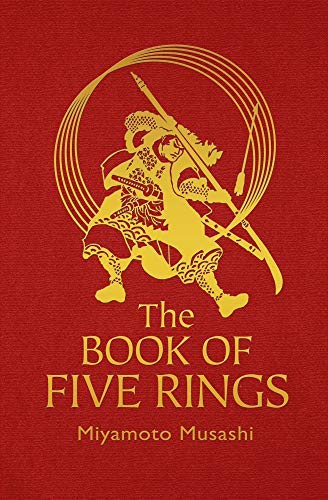
The Book of Five Rings is almost 400 years old, but its lessons are timeless.
The book is a text on sword fighting strategy written by Japanese swordsman Miyamoto Musashi in the year 1643.
Although we are well beyond the age of swords, the strategic sabiduría laid out in The Book of Five Rings is timeless and has a wide array of applications in the modern world.
Read my collection of notes and big ideas here—> Book of Five Rings notes and summary
Hakagure by Yamamoto Tsunetomo
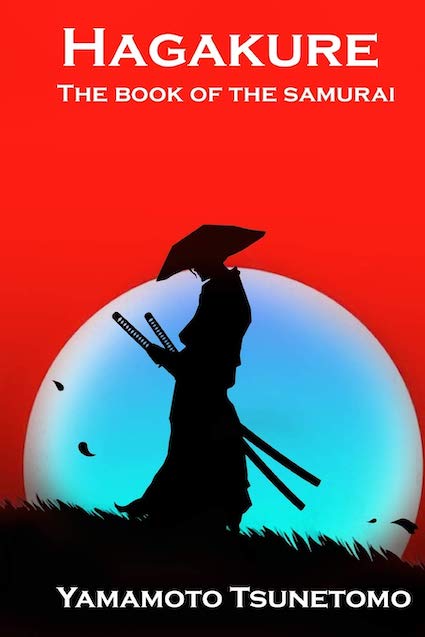
The Hagakure: The Book of The Samurai may have been written in the early 18th century, but it contains some quotes, passages, and ideas that are highly relevant to the modern era.
It was written by Yamamoto Tsunetomo. a samurai in the early 18th century. After he was forbidden by law, he retired to a monastery from committing “tsuifuku” (suicide of a retainer after his master’s death). Although he never fought in any battles, he felt that the samurai of his day were becoming weak, soft, and ineffective.
A younger samurai that visited Yamamoto many times over the years wrote down his words in The Hagakure: The Book of The Samurai. After reading the book, I’ve collected the 10 most useful and instructive quotes from it.
Read my collection of notes and big ideas here—>The Hagakure notes and summary
Boxing Lessons on Grit, Resilience, and Antifragility
In this e-book, I teach you 20 mindset lessons I learned from my 13-1-1 professional heavyweight boxing career.
Use these to conquer any challenges you face, in the ring or in life.
Learn how to develop the mindset of a fighter, from a fighter, so you can win the battles you face.
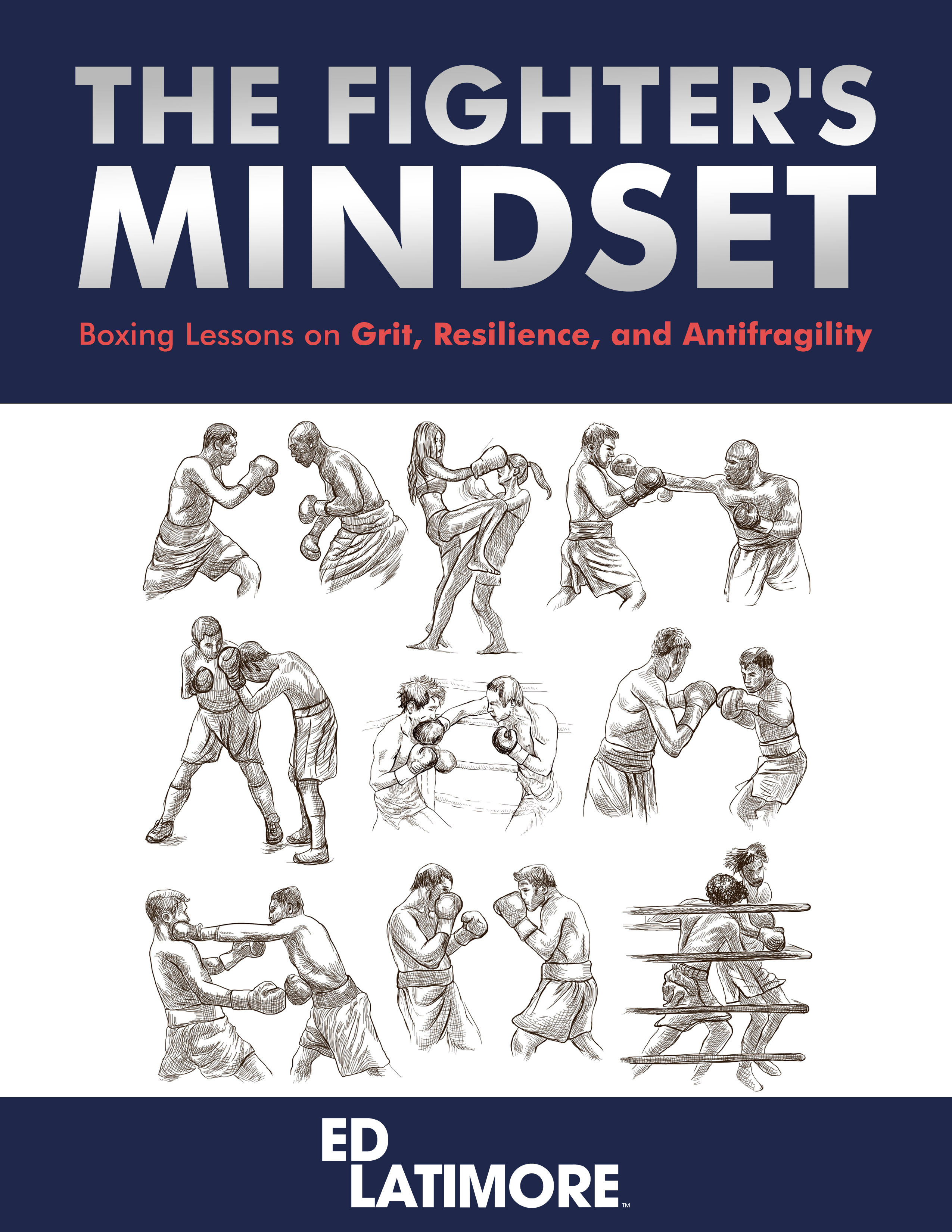
The Art of War by Sun Tzu
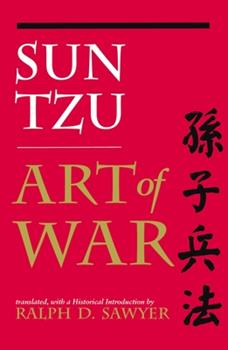
The Art of War is an ancient Chinese military guide by Sun Tzu that was penned sometime around the 5th century, B.C. It is composed of 13 chapters, each devoted to a different aspect of strategy and or tactics in war.
It’s a surprisingly short read. I read it on my kindle and the page counter had it pegged at 30 pages, including pre and post-text filler. This makes sense, as it’s actually the lead text in an ancient anthology called “The Seven Military Classics” by Emperor Shenzong of Song.
Despite its short length, the ideas it’s packed with apply to many areas in life. The strategies apply to modern warfare, business, negotiation, and even relationships.
Read my collection of notes and big ideas here—>The Art of War notes and summary
The Tao of Jeet Kune Do by Bruce Lee
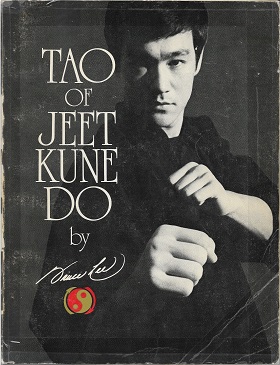
The Tao of Jeet Kune Do is one of my favorite books because fighting is an excellent analogy for many things in life. Bruce Lee captures many poignant observations from martial arts that apply to many areas of life.
Bruce Lee kept various notes throughout the development of his fighting system that would also be used in the book. Many of these notes were “sudden inspirations” which were incomplete and lacked any kind of a construct. The combination of the “core set of writings” and the “disparate notes” make up the text Tao of Jeet Kune Do.
As a result, the book doesn’t read like a narrative or even a complete work. Rather, it’s a set of observations and notes, written in a flowing style, as Bruce sporadically captured many of these inspirations.
This book is a must-have for any martial artist or philosopher out there. Below I’ve collected my favorite quotes from The Tao of Jeet Kune Do, along with my extrapolations and explanations.
Read my collection of notes, and big ideas here—>The Tao of Jeet Kune Do notes and summary
Boxing Lessons on Grit, Resilience, and Antifragility
In this e-book, I teach you 20 mindset lessons I learned from my 13-1-1 professional heavyweight boxing career.
Use these to conquer any challenges you face, in the ring or in life.
Learn how to develop the mindset of a fighter, from a fighter, so you can win the battles you face.



